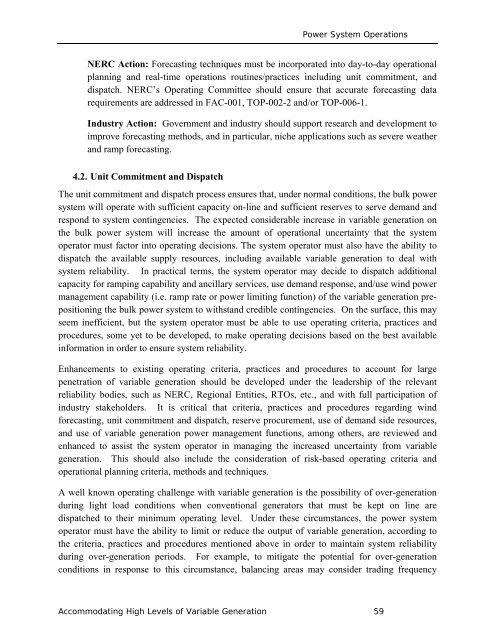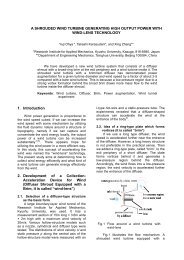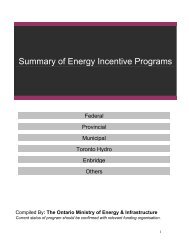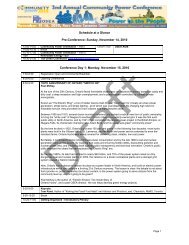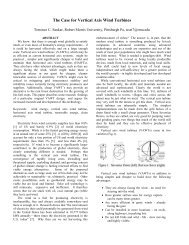Accommodating High Levels of Variable Generation - NERC
Accommodating High Levels of Variable Generation - NERC
Accommodating High Levels of Variable Generation - NERC
You also want an ePaper? Increase the reach of your titles
YUMPU automatically turns print PDFs into web optimized ePapers that Google loves.
Power System Operations<br />
<strong>NERC</strong> Action: Forecasting techniques must be incorporated into day-to-day operational<br />
planning and real-time operations routines/practices including unit commitment, and<br />
dispatch. <strong>NERC</strong>’s Operating Committee should ensure that accurate forecasting data<br />
requirements are addressed in FAC-001, TOP-002-2 and/or TOP-006-1.<br />
Industry Action: Government and industry should support research and development to<br />
improve forecasting methods, and in particular, niche applications such as severe weather<br />
and ramp forecasting.<br />
4.2. Unit Commitment and Dispatch<br />
The unit commitment and dispatch process ensures that, under normal conditions, the bulk power<br />
system will operate with sufficient capacity on-line and sufficient reserves to serve demand and<br />
respond to system contingencies. The expected considerable increase in variable generation on<br />
the bulk power system will increase the amount <strong>of</strong> operational uncertainty that the system<br />
operator must factor into operating decisions. The system operator must also have the ability to<br />
dispatch the available supply resources, including available variable generation to deal with<br />
system reliability. In practical terms, the system operator may decide to dispatch additional<br />
capacity for ramping capability and ancillary services, use demand response, and/use wind power<br />
management capability (i.e. ramp rate or power limiting function) <strong>of</strong> the variable generation prepositioning<br />
the bulk power system to withstand credible contingencies. On the surface, this may<br />
seem inefficient, but the system operator must be able to use operating criteria, practices and<br />
procedures, some yet to be developed, to make operating decisions based on the best available<br />
information in order to ensure system reliability.<br />
Enhancements to existing operating criteria, practices and procedures to account for large<br />
penetration <strong>of</strong> variable generation should be developed under the leadership <strong>of</strong> the relevant<br />
reliability bodies, such as <strong>NERC</strong>, Regional Entities, RTOs, etc., and with full participation <strong>of</strong><br />
industry stakeholders. It is critical that criteria, practices and procedures regarding wind<br />
forecasting, unit commitment and dispatch, reserve procurement, use <strong>of</strong> demand side resources,<br />
and use <strong>of</strong> variable generation power management functions, among others, are reviewed and<br />
enhanced to assist the system operator in managing the increased uncertainty from variable<br />
generation. This should also include the consideration <strong>of</strong> risk-based operating criteria and<br />
operational planning criteria, methods and techniques.<br />
A well known operating challenge with variable generation is the possibility <strong>of</strong> over-generation<br />
during light load conditions when conventional generators that must be kept on line are<br />
dispatched to their minimum operating level. Under these circumstances, the power system<br />
operator must have the ability to limit or reduce the output <strong>of</strong> variable generation, according to<br />
the criteria, practices and procedures mentioned above in order to maintain system reliability<br />
during over-generation periods. For example, to mitigate the potential for over-generation<br />
conditions in response to this circumstance, balancing areas may consider trading frequency<br />
<strong>Accommodating</strong> <strong>High</strong> <strong>Levels</strong> <strong>of</strong> <strong>Variable</strong> <strong>Generation</strong> 59


